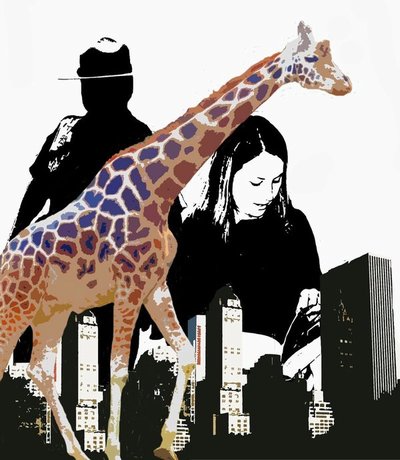March 2, 2006
Class gives credit for solving real-world problems
Who is responsible for addressing the epic problems of our age? What is society to do about homelessness, poverty, disease, discrimination, addiction, suicide, injustice and other widespread afflictions?
Must the government always be the main agent for change, or should charitable, faith-based and other public organizations share the burden? And most important, where does individual responsibility begin for these public problems?
Lots of questions, to be sure, but these are the substantial matters being taken up by Eugene Edgar, a professor of special education, and his Winter Quarter honors seminar, “Public Problems: Who is Responsible and How Should They Be Solved?”
Edgar, who has worked extensively with different types of learning communities (and earned the James D. Clowes Award for Advancement of Learning Communities in 2004), said the seminar is a comfortable match with his teaching style and goals. “In my time at the UW I have tried to get students to feel responsible to share their knowledge and privilege with the greater society,” he said. “To take their passions and knowledge and try and find a way to put them to public use.” The fact that the class is an honors seminar, he said, “gives me leeway in what and how I teach — an incredible freedom, a chance to be unfettered.”
As part of their study, the students studied the work of John Graham, president of the Whidbey Island-based charitable organization The Giraffe Project. A former U.S. diplomat and author of the books It’s Up to Us and Stick Your Neck Out, Graham and the Giraffe Project, according to the association’s Web statement, honor “people who stick their necks out for the common good, inspires others to do the same, and gives them tools to succeed.” Graham even visited the seminar at the end of January, to discuss his work.
Then students each chose a public problem and created a proposal for solving, or at least improving it, which they read in class. The ideas varied in scope and strategy — one suggested a yearlong program of civic service for college graduates; another set out a plan for making voting “either mandatory or very worthwhile through tax cuts or incentives.” Other ideas included a “Web-based time-awareness system” to help people manage their time, money and effort, and giving tax incentives to corporations that allow their employees time to volunteer.
Then, in an event to which the public is invited, three groups of students from the seminar will present proposals before a three-person panel of local leaders versed in public policy. These visitors will be William Grace, founder of the Center for Ethical Leadership; James Kelly, president of the Seattle Metro Urban League; and Sunny Spiedel, owner of the Underground Seattle tour company. The meeting will be from 3:30 to 5:30 p.m. March 7 in 206 Mary Gates.
“That’s my attempt to get this a little away from academia,” Edgar said.
The seminar participants, all undergraduate honors students, seem interested and involved by the class. In an e-mail, student Jake Sweeney-Samuelson wrote, “The class gives us a chance to step back from individual problems in society and look at the concept of public problems itself. … With most large problems it is impossible to single out a specific entity that is wholly responsible, so it becomes necessary for someone or some group to pick up the slack and take responsibility.”
Student Evan Elise Easton-Calabria wrote that she wished the class could meet more than just once a week, “so the curriculum could be expanded.” She added, “Learning of ways that people are solving problems is inspiring, and having a place to brainstorm and create my own ideas about helping the world has been empowering.”
And if the seminar seems a bit idealistic at times, well, that’s part of the process. Student Sweeney-Samuelson also said one of the most challenging parts of the class is “suspending my pessimism.” He added, “However, I think it is a very valuable thing to do, since pessimism will get you nowhere. We have to come up with some ideas for solutions, or we are being irresponsible, and I think just realizing that and considering it makes this class valuable.”
Edgar would likely be happy to hear it. Whether they voice personal opinions on worldwide concerns or stand up before their local city council later in life, he said, he hopes the class has given the students “some practical things they can do to make their world better … to think of public problems and individual responsibilities as citizens.”
Student Easton-Calabria added, “I really enjoy this group and I wish that this class could be taken further as a whole — out of the classroom and into the world.”
She needn’t worry. The students will take it there themselves, in time.



